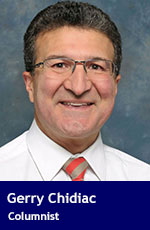 Looking at the world through the lens of the media, it’s difficult to gain a clear perspective on what type of government works and what doesn’t, who’s a good leader and who’s bad, and where people are happy and where they’re not.
Looking at the world through the lens of the media, it’s difficult to gain a clear perspective on what type of government works and what doesn’t, who’s a good leader and who’s bad, and where people are happy and where they’re not.
We’ve been taught in the West that democracy is the ideal form of government and we tend not to question this perspective. Perhaps we should.
Africa, for example, was divided by powerful men on a different continent in the late 1800s. They created borders that were completely arbitrary to the people actually living in Africa. The result was that people in the same tribe found themselves in different countries and people in the same countries found themselves with people who didn’t even speak the same language.
The system worked under colonialism because those in power used these differences to pit groups of Africans against each other and thus maintain control. When these countries gained independence, the error of colonial thinking became very apparent.
Even many decades after most of Africa has achieved independence, it’s difficult for any country there to achieve a stable democracy.
This isn’t just an African issue. Many countries around the world are ruled by a single, powerful leader.
Whether a dictator is labelled good or bad has more to do with the political alliances of the media outlet providing the report.
FROM THE ARCHIVES: Democracy is wasted on the little people by Pat Murphy
In addition, many foreign reporters don’t live permanently in the countries they’re reporting from and few know the local languages. There’s no way they can get a clear perspective on what’s happening around them if they’re not able to spend sufficient time with locals and earn their trust.
For those of us trying to make sense of the world, the media is rarely a good source of information.
One way to gain a better understanding of what’s happening in other countries is to objectively study social statistics.
- How well is the government taking care of its people, especially its most vulnerable?
- Is the infant mortality rate dropping?
- Do people have access to health care?
- Is the literacy rate improving?
- Do all children have access to education, regardless of gender or ethnicity?
Given this lens, we can see beyond political alliances and measure the effectiveness of certain governments. In Africa, few can rival the success of Paul Kagame in Rwanda, despite his questionable human rights record.
Kagame effectively channelled foreign aid and rebuilt his country from the devastation of the 1994 genocide. Today, health-related statistics in Rwanda include an infant mortality rate better than that of South Africa and a life expectancy of 69 years, which is one of the best in Sub-Saharan Africa. Literacy rates are more middle of the road for this part of the world, though they’re improving, especially among women under 24.
PERSPECTIVE: The making of a monster: Paul Kagame’s bloodstained past from the Spectator
Despite being the de facto dictator for over a quarter of a century, Kagame remains very popular among the Rwandan people.
Perhaps the world’s greatest success story with regard to improvements in health and education is Cuba. Today they have a higher life expectancy, a lower infant mortality rate and a higher literacy rate than any other Latin American country and even rival the United States in these areas.
Though many Cubans left the country during Fidel Castro’s 57 years as leader, those who remained were visibly saddened by his death in 2016.
For years, we have favoured the leaders who allow foreign financial investors to operate in their countries with the fewest restrictions. That doesn’t determine whether a government will be effective in the long run. In fact, it generally leads to instability.
People in developing countries deserve leaders who will prioritize their well-being above all else. In the end, those are also the governments that will remain the most stable.
Troy Media columnist Gerry Chidiac is an award-winning high school teacher specializing in languages, genocide studies and works with at-risk students. For interview requests, click here.
The views, opinions and positions expressed by columnists and contributors are the authors’ alone. They do not inherently or expressly reflect the views, opinions and/or positions of our publication.
© Troy Media
Troy Media is an editorial content provider to media outlets and its own hosted community news outlets across Canada.


